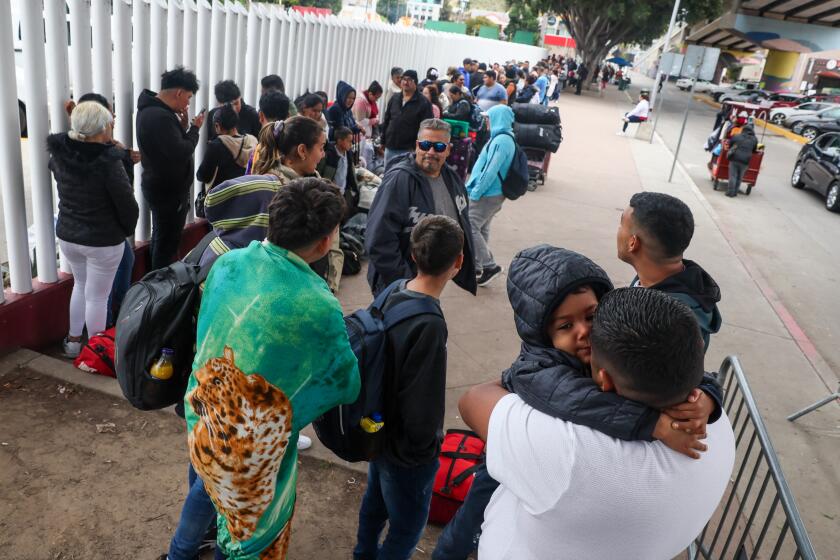U.S. judge blocks ban on illegal immigrants
A federal judge Tuesday temporarily barred the city of Hazleton from implementing a law designed to prevent illegal immigrants from living in the town.
Judge James Munley of the U.S. District Court for the Middle District of Pennsylvania issued a temporary restraining order against the Hazleton City Council, preventing it from enforcing its Illegal Immigration Relief Act Ordinance.
The measure has become a model for other U.S. towns that blame illegal immigrants for a range of social problems.
The law, which had been scheduled to take effect today, would fine landlords found to be renting space to illegal immigrants, close down businesses that hire them, and allow legal employees to sue the businesses for employment lost during such a shutdown. A related ordinance also establishes English as the town’s official language.
The restraining order is valid until Nov. 14.
In a 13-page opinion, Munley said immigrants risked “irreparable injury” by being evicted from their homes if the law were enforced. He also said he was not convinced by the City Council’s argument that illegal immigration increased crime and overburdened social services.
“Defendant offers only vague generalizations about the crime allegedly caused by illegal immigrants but has nothing concrete to back up these claims,” Munley wrote.
He added that since the plaintiffs -- representing the town’s Latino community -- claimed the law affected constitutionally protected rights, it was in the public interest to delay enforcement of the ordinance until a court could consider its constitutional implications.
About a third of Hazleton’s 31,000 residents are immigrants from Central America. According to local civil rights activists, about a quarter of the town’s immigrant population is in the United States illegally.
The ordinance, passed by the City Council in July and revised in September, is seen as a template for similar laws passed by 10 other municipalities around the country, according to the Puerto Rican Legal Defense and Education Fund, one of the groups that has joined in a lawsuit challenging the measure.
Thirty-two towns are considering similar measures.
More to Read
Start your day right
Sign up for Essential California for news, features and recommendations from the L.A. Times and beyond in your inbox six days a week.
You may occasionally receive promotional content from the Los Angeles Times.






